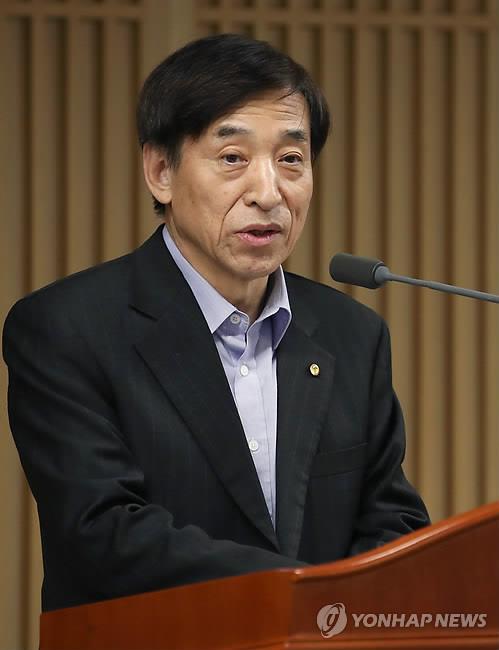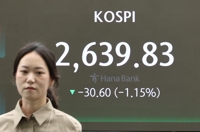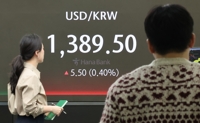(LEAD) U.S. monetary normalization, trade dispute big risks for S. Korea: BOK chief
(ATTN: ADDS comments in paras 11-18)
SEOUL, Dec. 19 (Yonhap) -- The normalization pace of U.S. monetary policy and the ongoing trade dispute between Washington and Beijing are the two big downside risks that the South Korean economy will have to deal with next year, the central bank chief has said.
"The South Korean economy has a high reliance on trade, and its financial market is wide open. We have to be ready to cope with global issues," Bank of Korea (BOK) Gov. Lee Ju-yeol said in a press meeting Tuesday.
The U.S. Federal Reserve is widely expected to raise the fed rates this week, which would be the fourth rate hike of the year.
The U.S. central bank upped the rates to a range of 2 percent to 2.25 percent in September, putting rate spread between the U.S. and Korea at 0.5 percentage point.
In November, the BOK raised the policy rate by a quarter percentage point for the first time in a year to 1.75 percent.
A far wider rate spread may spark an outflow of foreign funds from the South Korean financial market. Currently, more than 30 percent of market capitalization of South Korea's benchmark KOSPI bourse is owned by foreign investors.
Despite such factors, the BOK chief said the central bank has no plan to revise its earlier growth outlook for Asia's fourth-largest economy.
In October, the BOK anticipated that the Korean economy will pull off 2.7 percent growth for next year. The finance ministry cut its 2019 growth target by 0.2-0.3 percentage point to 2.6-2.7 percent on Monday.
"Macroeconomic conditions will likely not worsen next year," he said. "The government is determined to implement stimulus packages to boost the economy, and this will offset such downside risks like the U.S.-China trade dispute and concerns over the slowing U.S. economy."
Many private institutions and think tanks have forecast that the South Korean economy will grow 2.3-2.6 percent in 2019, down from 2.7 percent in 2018.
The top central banker said it is the time to find new growth momentum of the economy, which has been boosted by brisk global demand for semiconductors in recent years.
Exports of South Korea-made semiconductors surged 37.4 percent on-year in the first nine months of the year, while overall outbound shipments climbed 4.7 percent.
"The chip industry has been propping up the economy, but I'm not sure how long this upward trend will continue," Lee said.
Lee said the local job market seems to have been affected by the sharp increase in the country's legal minimum wage.
The government raised the minimum wage to 8,350 won for next year, up 10.9 percent from this year's level. This year, the wage rose 16.4 percent from 2017, as the Moon Jae-in government pushes for its income-led, or consumption-led, economic growth policy.
But the policy has backfired as small businesses complain of higher labor costs amid an economic downturn, while critics argue that the increase is hurting entry level hiring and weighing down the local economy.
"The government is preparing strong stimulus measures to bolster businesses investment," he said. "The adverse effect stemming from a minimum wage hike is expected to be offset by the government-led expansionary policies."
He said the bank will put its monetary policy focus on seeking financial stability and stimulating the economy at the same time next year.
"Household debt is still increasing fast, although the pace has been slowing down slightly," the governor said. "If this upside tempo continues, the South Korean economy will be less resilient to external shocks. We have to be cautious."
South Korea's household credit, which surpassed 1,500 trillion won (US$1.33 trillion) as of the end of September, has been on a record-breaking increase for nearly four years thanks to government-led economy boosting measures and expansionary monetary policy.
The incumbent Moon Jae-in government, which took office in May last year, has been trying to cool down the overheated housing market and called on the central bank to raise the key rate.
brk@yna.co.kr
(END)
-
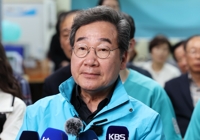 Ex-PM suffers crushing defeat
Ex-PM suffers crushing defeat -
 Defense chief says N. Korea's hypersonic missile 'unsuccessful' in last-stage glide flight
Defense chief says N. Korea's hypersonic missile 'unsuccessful' in last-stage glide flight -
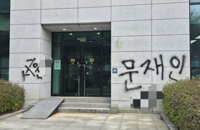 Man in his 40s nabbed for spray-painting slurs toward ex-President Moon
Man in his 40s nabbed for spray-painting slurs toward ex-President Moon -
 Police catch 1,681 over alleged election law violations
Police catch 1,681 over alleged election law violations -
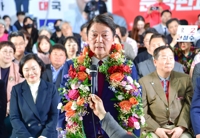 PPP lawmaker says entire Cabinet should resign over general elections defeat
PPP lawmaker says entire Cabinet should resign over general elections defeat
-
 Defense chief says N. Korea's hypersonic missile 'unsuccessful' in last-stage glide flight
Defense chief says N. Korea's hypersonic missile 'unsuccessful' in last-stage glide flight -
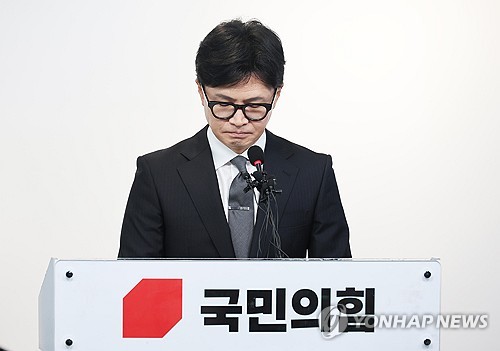 Ruling party leader resigns following election defeat
Ruling party leader resigns following election defeat -
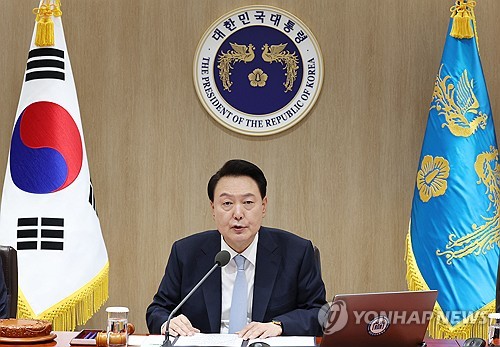 (LEAD) Yoon vows to improve communication with people after election defeat
(LEAD) Yoon vows to improve communication with people after election defeat -
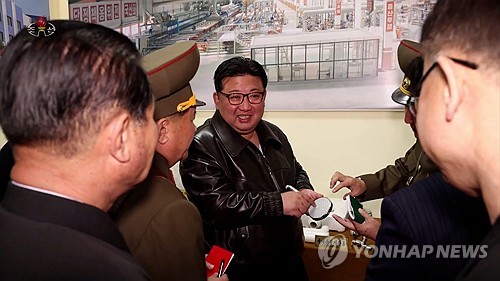 N.K. leader vows to deal 'death-blow' to enemy in event of confrontation: KCNA
N.K. leader vows to deal 'death-blow' to enemy in event of confrontation: KCNA -
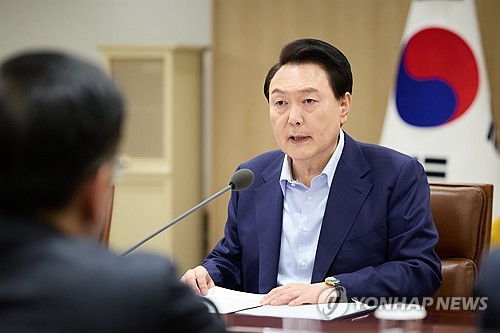 Yoon presides over emergency meeting on Mideast crisis
Yoon presides over emergency meeting on Mideast crisis
-
 N. Korea has capability to genetically engineer biological military products: U.S. report
N. Korea has capability to genetically engineer biological military products: U.S. report -
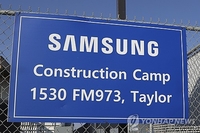 (3rd LD) U.S. unveils US$6.4 bln in CHIPS Act grants to Samsung Electronics
(3rd LD) U.S. unveils US$6.4 bln in CHIPS Act grants to Samsung Electronics -
 (LEAD) S. Korea 'strongly' protests Tokyo's renewed claims to Dokdo, calls in Japanese diplomat
(LEAD) S. Korea 'strongly' protests Tokyo's renewed claims to Dokdo, calls in Japanese diplomat -
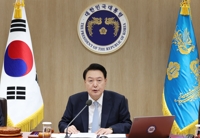 (LEAD) Yoon vows to improve communication with people after election defeat
(LEAD) Yoon vows to improve communication with people after election defeat -
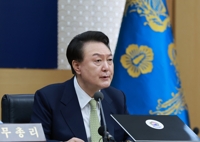 (LEAD) Yoon to address election defeat Tuesday
(LEAD) Yoon to address election defeat Tuesday

